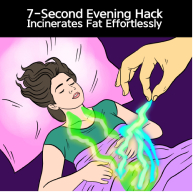Hormonal belly fat is a common yet complex challenge affecting many women over 35, especially during life changes like menopause. This type of abdominal fat is not just a cosmetic concern—it is closely linked to significant health risks including cardiovascular disease, type 2 diabetes, and metabolic syndrome. Understanding how hormones influence fat distribution and metabolism is the first step in developing effective strategies to reduce hormonal belly fat and improve overall health. For a comprehensive overview of how hormones affect belly fat and the latest research on managing it, you can refer to this hormonal imbalance and obesity study.
Understanding Hormonal Belly Fat: Causes and Influences
Hormonal belly fat develops primarily due to imbalances in key hormones such as cortisol, estrogen, testosterone, insulin, and thyroid hormones.
The Role of Cortisol and Stress
Cortisol, known as the stress hormone, plays a pivotal role in fat metabolism. Chronic stress leads to sustained high cortisol levels that promote fat storage around the abdomen, increase appetite, and disrupt normal metabolic processes. Elevated cortisol can create a feedback loop exacerbating belly fat accumulation. Women dealing with stress and inadequate sleep are especially susceptible to this cycle. Interestingly, stress management techniques like meditation and deep breathing effectively lower cortisol levels and support weight management. Harvard Health suggests that combining aerobic and resistance training helps reduce cortisol’s impact and visceral fat accumulation.
Sex Hormones and Fat Distribution
Women experience a natural shift in hormone levels around menopause that dramatically influences fat distribution. Estrogen levels decline during this phase, altering fat storage from the hips and thighs to the abdominal area. This shift is associated with increased visceral fat, which is metabolically active and linked to higher health risks. Hormone replacement therapy (HRT) may benefit some women by maintaining more favorable fat distribution and improving metabolic health. For men, declining testosterone with age similarly promotes visceral fat gain. Both sexes may experience an imbalance between androgens and estrogens, influencing abdominal fat deposits.
Insulin Resistance and Metabolic Factors
Insulin resistance, which commonly accompanies hormonal imbalances like polycystic ovary syndrome (PCOS) and menopause, leads to increased fat storage, particularly in the belly. Managing insulin sensitivity through diet and exercise is critical to combat this effect.
Proven Strategies to Reduce Hormonal Belly Fat
Effectively reducing hormonal belly fat requires a multi-faceted approach that addresses diet, exercise, hormone balance, and stress management.
Nutrition: The Best Diet for Hormonal Belly
A balanced, nutrient-rich diet supports hormonal balance and fat reduction. Some key nutritional recommendations include:
- High Fiber Intake: Eating plenty of vegetables, fruits, and whole grains promotes satiety and helps regulate insulin.
- Lean Proteins and Healthy Fats: Foods like fish, nuts, and olive oil boost metabolism and hormonal health.
- Low Refined Carbohydrates and Sugars: Limiting processed foods and sugary drinks reduces insulin spikes associated with fat accumulation.
- Phytoestrogen-Rich Foods: Including flaxseeds and soy may help modulate estrogen levels naturally.
- Hydration: Drinking water instead of sugary beverages supports metabolism and reduces calorie intake.
Starting meals with fiber-rich vegetables is a practical approach, as it increases fullness and leaves less room for calorie-dense foods. Research supports the Mediterranean diet as an effective, sustainable model for managing abdominal fat and promoting hormonal health.
Exercise: Combining Strength Training and Cardio
Physical activity is essential for hormonal balance and visceral fat reduction:
- Moderate Aerobic Exercise: Activities like brisk walking, cycling, or swimming for at least 30 minutes daily help burn belly fat.
- Strength Training: Building lean muscle mass enhances basal metabolic rate and improves insulin sensitivity.
- High-Intensity Interval Training (HIIT): Short bursts of intense movement can be especially effective for fat loss.
- Yoga and Mind-Body Workouts: These reduce stress and lower cortisol levels, improving hormonal balance.
Exercise not only reduces existing fat but also prevents its return by supporting a healthy metabolism and hormonal regulation. Simple lifestyle adaptations such as walking more or opting for stairs can cumulatively contribute to fat loss. Strength training benefits and aerobic workouts have been illustrated in multiple clinical studies.
Stress Management and Sleep Hygiene
Chronic stress directly impacts cortisol levels, increasing appetite, cravings for high-calorie foods, and abdominal fat storage. Implementing stress reduction techniques is vital:
- Practice mindfulness, meditation, or yoga regularly.
- Prioritize 7-9 hours of quality sleep nightly to regulate hunger and stress hormones.
- Take breaks and engage in calming hobbies to reduce daily stress.
Research highlights that poor sleep duration correlates with increased visceral fat accumulation. Improving sleep quality helps mitigate hormone-driven weight gain.
Medical Interventions and When to Seek Help
If lifestyle modifications do not yield results, professional assessment is important. Blood tests evaluating hormone levels—including thyroid function, insulin resistance markers, and sex hormones—can reveal underlying imbalances.
Treatment options include:
- Hormone Replacement Therapy (HRT): Useful for menopausal women or men with low testosterone.
- Medications for PCOS and Insulin Resistance: Drugs such as metformin improve metabolic control.
- Thyroid Hormone Management: For individuals with hypothyroidism contributing to fat gain.
- Surgical or Pharmacological Treatment for Cushing’s Syndrome: If diagnosed.
Always consult healthcare professionals before beginning any hormonal treatments.
Conclusion
Hormonal belly fat is a multifactorial challenge that requires understanding the complex relationships between hormones, lifestyle, and metabolism. Women over 35, especially during menopausal transition, can benefit greatly from targeted strategies including a balanced diet rich in fiber and healthy fats, consistent exercise combining cardio and resistance training, active stress reduction, and medical evaluation when necessary. By addressing the root hormonal causes such as elevated cortisol, declining estrogen, and insulin resistance, sustainable belly fat reduction and improved health outcomes become achievable.
Taking proactive steps today, such as adopting the Mediterranean diet or integrating mindfulness practices, can significantly enhance hormonal health and reduce harmful abdominal fat. For ongoing guidance and personalized care, consulting healthcare providers ensures safe and effective management.
To learn more about how stress affects fat metabolism and ways to regulate hormones effectively, explore this detailed resource on stress hormones and body response.
FAQs
Q1: What is hormonal belly fat and how does it differ from regular fat?
Hormonal belly fat specifically results from imbalances in hormones such as cortisol, estrogen, and insulin that promote fat storage in the abdominal area. It tends to resist traditional weight loss methods and requires addressing underlying hormonal causes.
Q2: How does cortisol contribute to belly fat?
Chronic stress increases cortisol production, which signals the body to store fat around internal organs to prepare for ‘fight or flight.’ Elevated cortisol also increases appetite and cravings for high-calorie foods.
Q3: Can menopause cause increased belly fat?
Yes. Declining estrogen levels during menopause shift fat storage to the abdomen, increasing visceral fat and associated health risks.
Q4: What lifestyle changes help reduce hormonal belly fat?
Adopting a high-fiber, low-sugar diet, engaging in regular aerobic and strength training exercise, managing stress through mindfulness techniques, and ensuring adequate sleep are foundational strategies.
Q5: When should I consider hormone therapy or medical treatment?
If lifestyle interventions are insufficient, or if symptoms like sudden weight gain, fatigue, or menstrual irregularities occur, seek medical advice for possible hormone evaluation and treatment.







